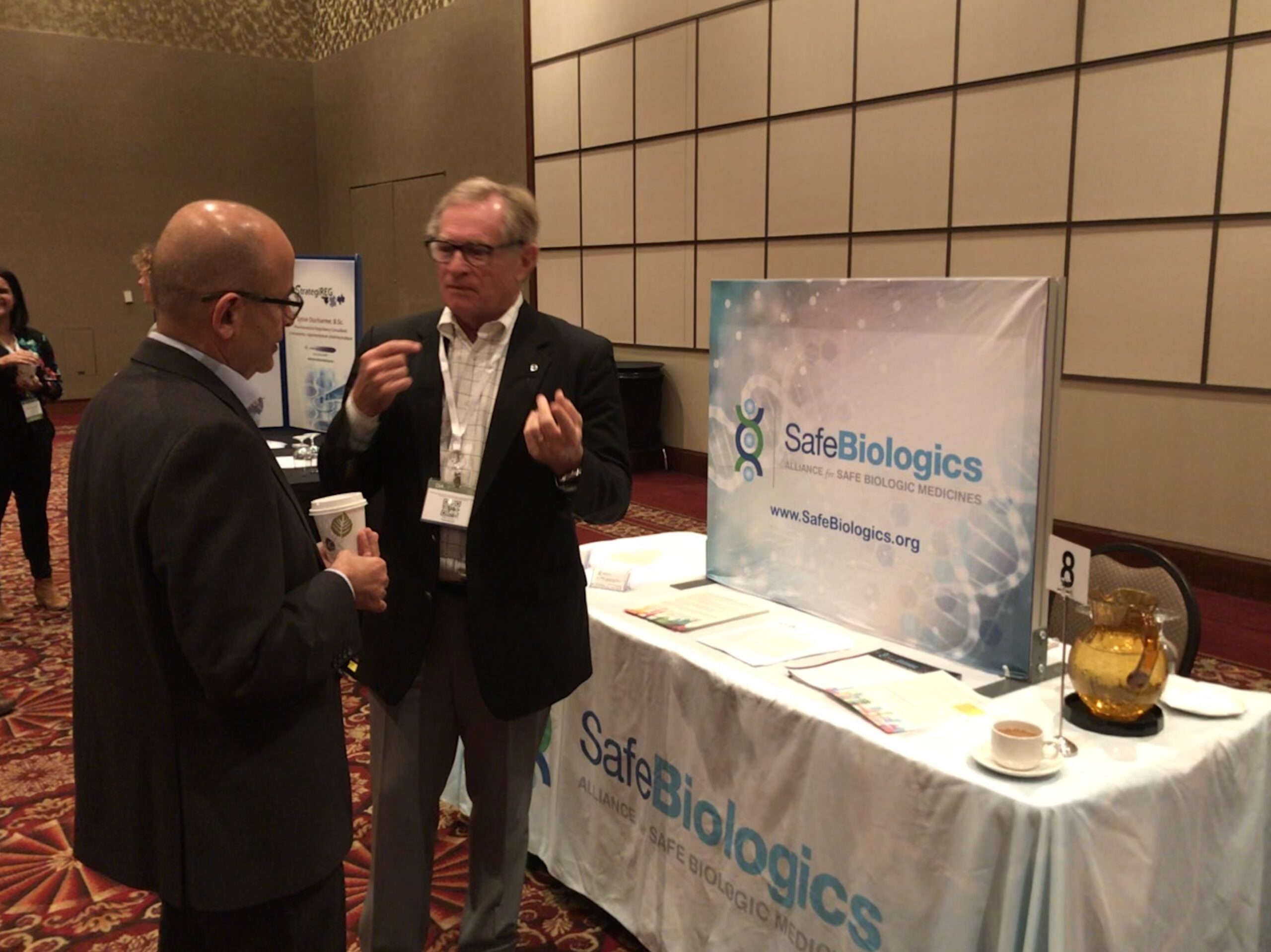On November 5th and 6th, ASBM exhibited at the (Drug Information Association (DIA) Annual Canadian Meeting, a meeting of Canadian regulators, researchers, health professionals and pharmaceutical manufacturers. Held in Gatineau, Quebec, just outside the Canadian capital of Ottawa, the meeting’s purpose is to present a comprehensive overview of the current bio-pharma and device landscape in Canada, while sharing insights into Canada’s broader role in global healthcare product development. Session topics included the patient experience, international collaboration, and the use of real-world evidence in safety and efficacy monitoring.
ASBM was represented at the conference by Advisory Board Chair Philip Schneider, MS FASHP FFIP. At ASBM’s booth, Schneider met with conference attendees, including several Health Canada officials, to discuss ASBM’s work. Policy issues discussed included the importance of distinct biologic nomenclature in pharmacovigilance, efforts toward international harmonization of biologic nomenclature, and emerging biosimilar substitution policies in Canada.
With Canadian provinces beginning to adopt their own biosimilar substitution policies, ASBM also used the Meeting as an opportunity to discuss potential lessons that could be learned from European countries. While at DIA Canada, ASBM released the abstract of a forthcoming whitepaper on the European biosimilars experience, co-authored by Dr. Schneider and ASBM executive director Michael Reilly. The paper examines the policies which led to Europe’s success- including preserving physician choice and promoting competition between multiple products:
“Due to its global leadership in biosimilar regulation and approvals, the biosimilar market in Europe has been the largest market to date, representing approximately 60% of the global biosimilar market and growing consistently year over year. As a result, European countries with their diverse healthcare systems and their experience to date serve as real world examples of different approaches of biosimilar policies to build an efficient and sustainable biosimilar market and thus offer an opportunity for other countries to learn and to avoid mistakes which may put short but in particular long-term savings at risk.”
The abstract was available at the ASBM booth, as was a new fact sheet, entitled “What Can Canada Learn From the European Biosimilar Experience?”, which incorporates findings from the whitepaper, data from ASBM’s recent survey of 579 European physicians, and the perspectives of Canadian physicians and patient advocacy organizations on substitution policy.

ASBM Advisory Board Chair Philip Schneider (right) discusses biosimilar policy with a Health Canada official.
